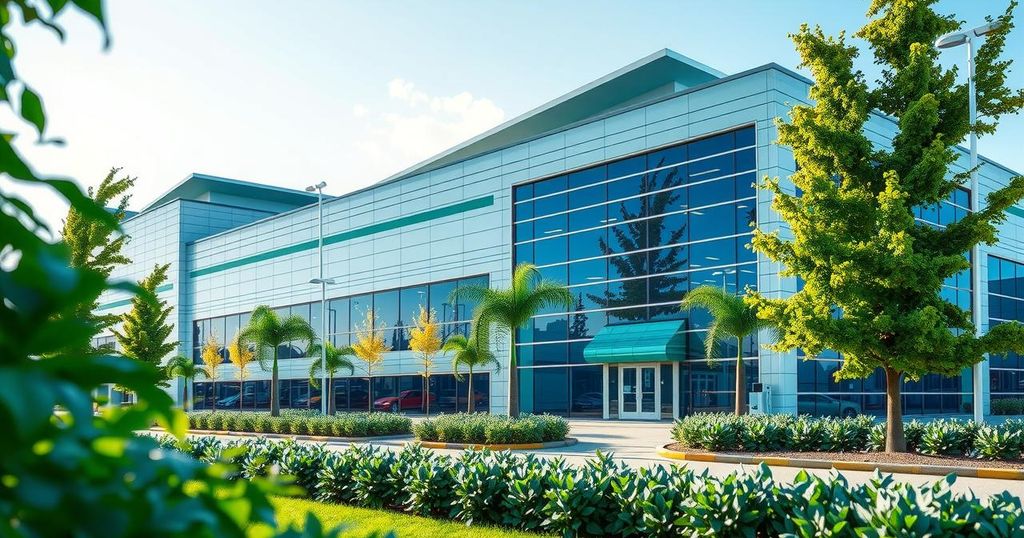BYD Launches Electric Vehicle Production in Brazil’s Camaçari Plant
- BYD has launched production at its Camaçari plant in Brazil.
- The plant is the company’s first EV manufacturing site outside China.
- Three models will be assembled initially, including the BYD Dolphin Mini.
- The plant is set to create 10,000 jobs as it expands its operations.
- BYD is urging the government to reduce tariffs on SKD vehicles to 10%.
- Allegations of human trafficking have emerged during the plant’s reconstruction process.
BYD’s Expansion into Brazil Marks New Era
BYD has officially launched production at its new electric vehicle plant in Camaçari, Brazil. This marks a significant milestone for the company, as it is their first manufacturing facility outside of China. The initial assembly will focus on three models: the BYD Dolphin Mini, which is referred to as the Seagull in its home market, along with the Song Pro and the King, known internationally as the BYD Qin Plus DM-i.
Camaçari Plant Promises Jobs and Increased Capacity
The Camaçari plant, located in the state of Bahia, is a reformed facility that previously housed Ford operations before being purchased by BYD in March 2024 for R$300 million, which equates to around 55 million USD. The plant boasts an impressive annual capacity of 150,000 units, supplemented by 26 warehouses and a dedicated test track. As part of their commitment to this venture, BYD has pledged a total investment of R$5.5 billion, with R$1.4 billion already earmarked for improvements. In a move that has excited locals, the company has stated that the plant has the potential to generate approximately 10,000 jobs, with 1,000 workers already employed and plans to add another 3,000 positions shortly.
Local Partnerships and Tariff Challenges
As part of its operations, the Camaçari plant will utilize a semi-knock-down (SKD) approach, where vehicles are partially assembled in China and transported to Brazil for final assembly. BYD aims to incorporate local components into the assembly process, having already partnered with Continental to source tires manufactured within Brazil. The timing of this plant launch is interesting, given Brazil’s recent hike in tariffs on electric vehicle imports, which now stand at 25% for all-electric cars and 28% for plug-in hybrids. By requesting a reduced tariff of 10% for semi-dismantled vehicles, BYD is anticipating some negotiations with the government, which have yet to yield any feedback.
Worker Conditions and Future Plans
Despite the optimism surrounding the Camaçari launch, there have been troubling reports casting a shadow on BYD’s operations. Earlier this year, Brazilian prosecutors launched legal action against the company and two contractors for alleged human trafficking and working conditions described as ‘analogous to slavery’ during the plant’s reconstruction. This led to the rescue of 220 Chinese workers following an inquiry sparked by an anonymous complaint, highlighting the need for vigilance in labor practices. Meanwhile, in a bid to further solidify its production capabilities, BYD is also expanding its operations in China, where a new plant for KD kits will serve export needs, signaling robust growth plans amid the ongoing challenges.
Targeting Brazilian Consumers with Affordable EV Models
In Brazil specifically, the Byr Dolphin Mini, which starts at R$118,800 (approximately 21,800 USD), is poised to be a competitive model in the market. It features a 75 hp motor and a 38.8 kWh lithium iron phosphate battery, aiming to attract a variety of consumers looking for electric alternatives. This dual focus on assembling vehicles locally while navigating regulatory hurdles illustrates BYD’s strategic approach to expanding its electric vehicle presence globally, particularly in rapidly evolving markets like Brazil.
The production commencement at BYD’s Camaçari plant signifies an important foray into the Brazilian electric vehicle market, promising employment opportunities and a new line of models. However, alongside the excitement, serious allegations regarding labor practices remind us of the complexities involved in this expansion. As BYD works towards overcoming taxation challenges and ensuring ethical labor conditions, its next steps will be crucial for sustaining its growth and reputation in both Brazilian and international markets.




Post Comment